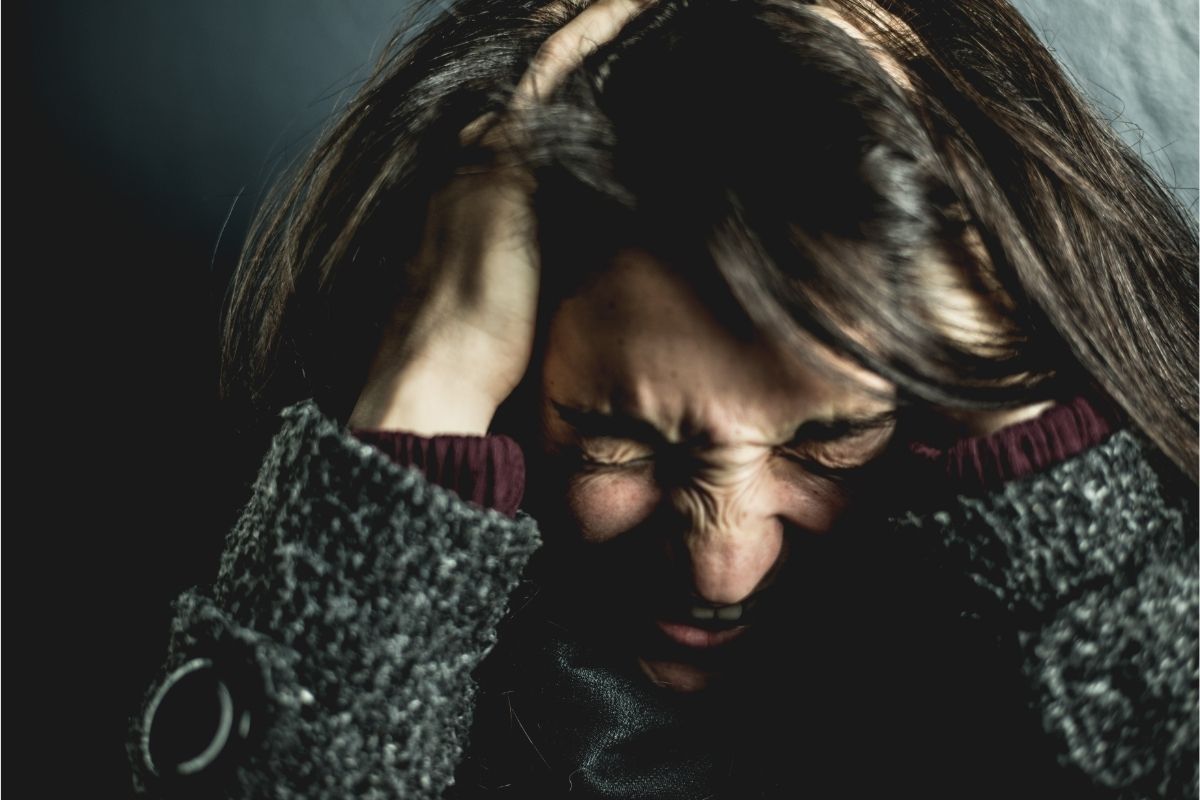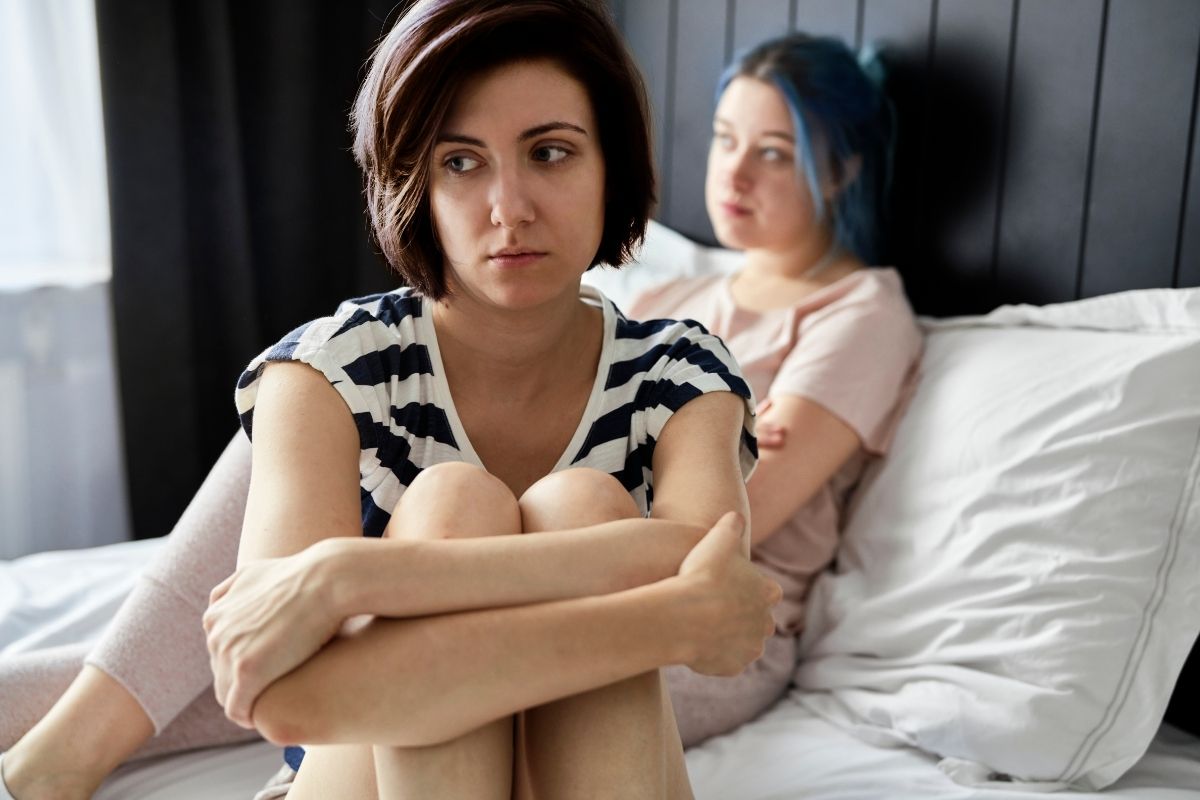Why Do I Shut Down When I’m Upset?

Many people disconnect emotionally when they’re upset. It’s a common reaction, but why does it happen?
Emotional shutdown can occur for different reasons. Sometimes it’s a way to protect ourselves. Other times, it’s because we struggle with negative feelings. Or it could be related to dissociation.
These are just a few examples of why we might shut down when stressed.
To really understand your own behavior patterns, it often helps to talk to a mental health professional. They can offer cognitive behavioral therapy (CBT) or other helpful approaches. But taking the first step to learn about your reactions is a big deal!
Let’s explore why people emotionally shut down when upset and how to deal with it.
What Causes Emotional Shutdowns?
Ever feel like you just can’t handle your emotions? That’s what an emotional shutdown is all about. It happens when our feelings become too intense to process.
There are lots of reasons for this. Maybe you’ve been through tough times before. Or you’re dealing with lots of stress or anxiety. Sometimes, it’s a sign of a deeper issue that needs attention.
Want to feel better? Check out these 10 exercises that give you the mental health boost you need.
Protecting Yourself: Emotional Shutdown as a Defense
When you’re overwhelmed or super stressed, your body goes into action mode. Your heart races, your breathing changes, and your brain releases stress hormones like cortisol and adrenaline.
These hormones get you ready to face challenges. But too much can make you feel worn out and anxious.
If your body overreacts to stress, it might just shut down. It’s like when you skip breakfast and go straight to work – you might feel fine at first, but later you crash and need a nap.
Shutting down is your body’s way of saying “Enough!” It’s trying to protect you from too much stress. Curious about how stress affects your body? Read up on how to get rid of anxiety nausea.
Why Do We Use Emotional Shutdown as a Shield?
Sometimes, we shut down because we feel like we have no other choice. We might think we should be able to control our emotions, but we just can’t.
To cope, we might avoid tricky situations or try to distract ourselves. This often means shutting down emotionally and pushing away those stressful feelings.
For example, some folks turn off their phones during tough talks. They don’t want to hear angry words, so they block them out. Others avoid certain topics or people entirely.
In these cases, people might not feel safe talking about their emotions. Or maybe they just don’t know how to process or discuss their feelings.
To survive the stress, it feels safer to ‘switch off’.
When Emotional Shutdown Meets Dissociation
Sometimes, shutting down in an argument isn’t just about self-defense. It could be dissociation.
Dissociation is different from a simple shutdown, but they can be linked. It’s when you feel detached from yourself or disconnected from reality.
This often happens with depression, PTSD, or severe anxiety. It’s usually a response to trauma. If something really upsetting happened and you couldn’t cope, your body might react by dissociating.
It’s not something you choose – it just happens when your brain is overwhelmed. It’s your body’s way of protecting you from pain and scary memories.
When this happens, you might feel really disconnected. You could experience brain fog or forget what you were doing just moments ago.
A therapist can help with dissociation. They’ll provide a safe space to work through trauma or upsetting memories. Sometimes, doctors might prescribe medication to help with distressing feelings.
Want to know more about dealing with tough experiences? Check out our article on How to talk about trauma in therapy.
Relationship Roadblocks: Emotional Shutdown and Stonewalling
Sometimes, we don’t shut down when we’re upset in general. Instead, it happens when we’re upset with someone specific – like a partner, family member, or authority figure.
In relationships, this can lead to stonewalling. You might feel hurt, embarrassed, or frustrated. When these emotions come up, you start to shut down.
This makes talking tough. You might get defensive and stop opening up. The other person might feel like you’re not responding, so they shut down too. It becomes a cycle of emotional shutdown.
Why does this happen? Maybe you feel like you can’t handle the situation. Or you’re afraid of being rejected. Sometimes, it’s a way to try and control things, even if you don’t mean to.
Breaking this cycle takes work. You need to figure out why you shut down and what you need. Then, talk to your partner and work through the problems together.
Don’t be afraid to ask for help! A therapist or relationship counselor can give you tools to deal with your emotions and keep your relationships strong.
Emotional shutdowns can really hurt relationships. When one person shuts down, they might seem distant and less caring. This can lead to misunderstandings and make both people feel frustrated and unhappy.
Why Do I Shut Down in Relationships?
When someone shuts down emotionally, it’s confusing and hurtful for everyone involved. So what does it mean? Often, it’s a sign that someone feels overwhelmed and can’t handle their emotions. This shutdown can be a way to protect themselves from emotional pain or stress.
How to Overcome Emotional Shutdowns in Relationships
Recognizing the signs of an emotional shutdown is key. Here are some steps to help:
- Talk openly: Share your feelings and thoughts with your partner. This builds trust and understanding.
- Try to understand: Put yourself in your partner’s shoes. This helps you get why they feel and act the way they do.
- Get professional help: If shutdowns keep happening, think about seeing a therapist or counselor to work on any deeper issues.
Wrapping It Up
If you find yourself shutting down, you might be dealing with emotional distress. Your body could be reacting to something, or you might be processing a triggered emotion.
Don’t be afraid to ask for help. A therapist can help you spot what sets you off and teach you how to handle tough situations.
Remember, it’s okay to need help. We all struggle sometimes, but with the right support, we can learn to handle our emotions better.

Author: Michelle Landeros, LMFT
Michelle Landeros is a Licensed Marriage Family Therapist (LMFT). She is passionate about helping individuals, couples and families thrive.




